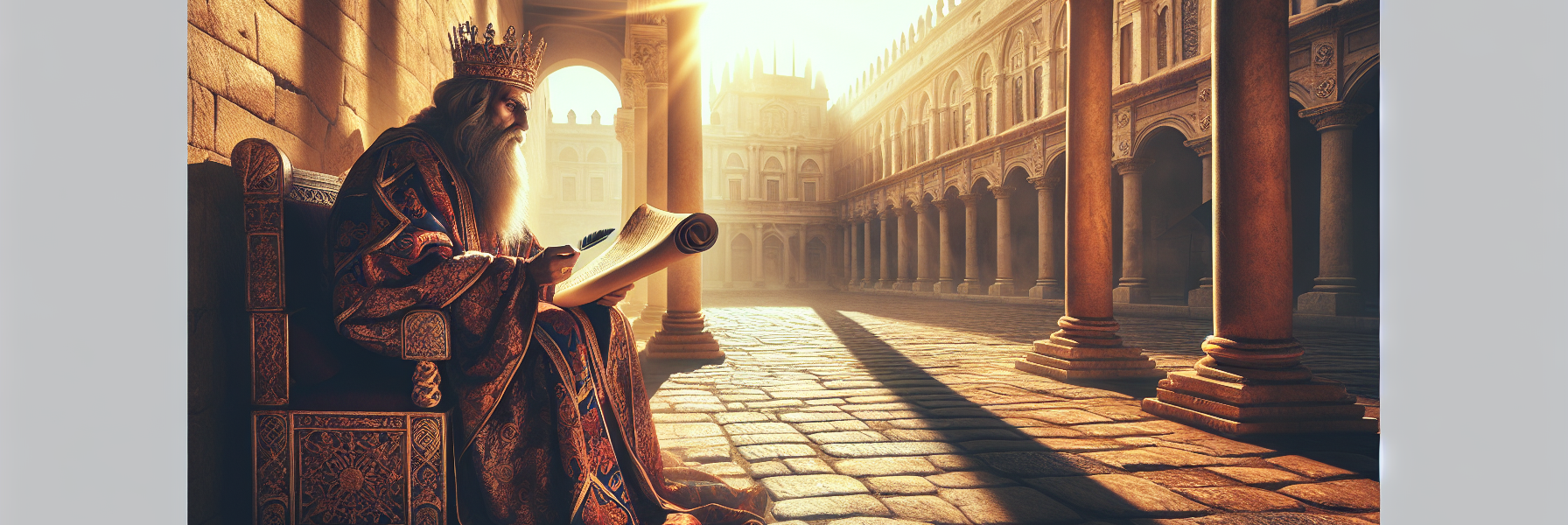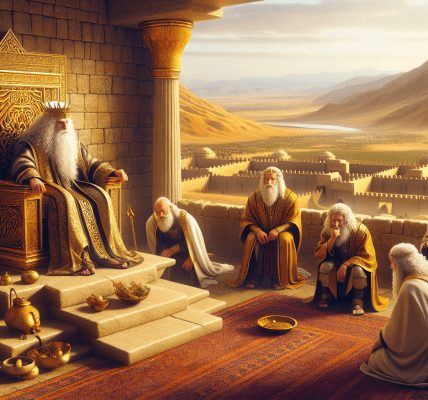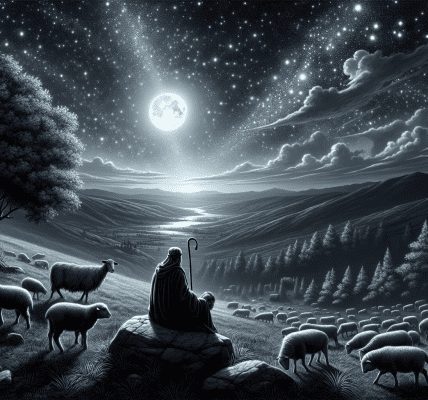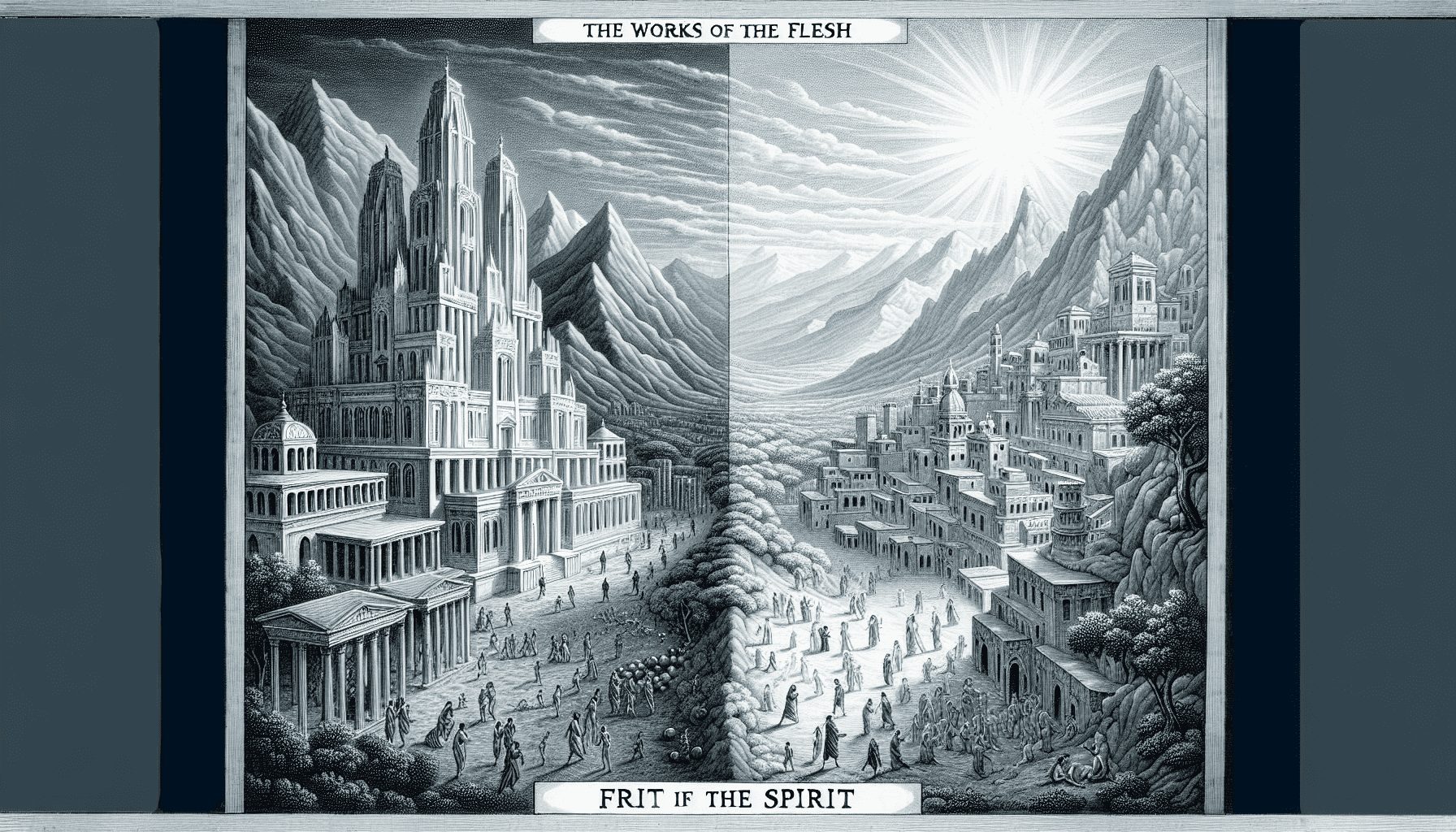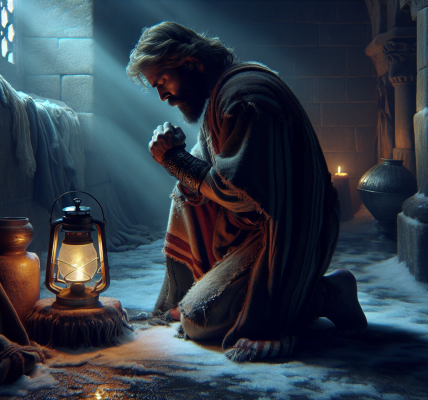**The Endless Cycle: A Meditation on Ecclesiastes 1**
The sun blazed fiercely over the ancient city of Jerusalem, casting long shadows across the cobbled streets where Solomon, the aged king, sat in the shade of his palace gardens. His once-vibrant robes now hung loosely on his weary frame, and his eyes, though still sharp, carried the weight of countless years of wisdom and folly alike. He picked up a scroll, dipped his quill in ink, and began to write—words that would echo through the ages.
*”The words of the Teacher, son of David, king in Jerusalem.”*
His voice was low, a murmur carried by the wind as he spoke aloud the truths that gnawed at his soul.
*”Meaningless! Meaningless!”* he declared, his tone heavy with sorrow. *”Utterly meaningless! Everything is meaningless.”*
Around him, the world continued its relentless march. The sun rose in the east, a golden orb climbing the heavens, only to sink again in the west, swallowed by the horizon in a blaze of crimson and purple. No sooner had it vanished than it began its journey anew the next morning. The king watched it all—the ceaseless rhythm of nature, the unending cycle of days—and sighed.
*”What do people gain from all their labors at which they toil under the sun?”*
He thought of the farmers in the valleys below, bending their backs to till the soil, sowing seeds with calloused hands, only to watch the rains come and go, the crops rise and fall, season after season. The earth yielded its bounty, yet the same hands that planted would one day return to dust, and new hands would take their place. The land remained, but the laborers were forgotten.
The wind, too, was a restless traveler. It swept down from the northern hills, rustling the leaves of the olive trees, swirling through the streets, whispering secrets against the stone walls—only to turn and rush back again, never settling, never ceasing.
*”The wind blows to the south and turns to the north; round and round it goes, ever returning on its course.”*
Even the rivers, those life-giving streams that carved their way through the land, seemed caught in an endless toil. The Jordan rushed toward the Salt Sea, pouring its waters without pause, yet the sea was never full. Where did the waters go? They rose again as mist, as rain, only to fall once more upon the mountains and begin their journey anew.
*”All streams flow into the sea, yet the sea is never full. To the place the streams come from, there they return again.”*
Solomon’s gaze turned inward. He had seen all things, tasted every pleasure, pursued every wisdom. He had built great palaces, amassed treasures beyond counting, and delighted in the love of many. Yet now, in his old age, his heart ached with a hollow weariness.
*”All things are wearisome, more than one can say. The eye never has enough of seeing, nor the ear its fill of hearing.”*
What had changed? Nothing. The world continued as it always had. The people of his youth had passed away, and a new generation stood in their place—only to fade in time like grass beneath the sun. Even the great deeds of kings and warriors were forgotten, lost like footprints in the sand.
*”There is no remembrance of former things, nor will there be any remembrance of things yet to come by those who come after.”*
He had sought knowledge, had prided himself on his understanding, yet even wisdom brought sorrow. The more he learned, the more he saw the futility of man’s striving.
*”For with much wisdom comes much sorrow; the more knowledge, the more grief.”*
The sun dipped lower, painting the sky in hues of fire. Somewhere in the city, a child laughed, a merchant haggled, a priest chanted prayers. Life went on, unaware of the king’s lament. And Solomon, the wisest of all men, closed his eyes and whispered to the wind—
*”What has been will be again, what has been done will be done again; there is nothing new under the sun.”*
The words hung in the air, a solemn truth etched into eternity. The cycles of the earth would not cease. The sun would rise, the winds would turn, the rivers would run—and man, in all his toil, would grasp at meaning but find only fleeting shadows.
And so the Teacher sat, a solitary figure beneath the heavens, penning his grief and his revelation, leaving behind a testament for generations yet unborn—that they too might ponder the endless cycle, and seek the One who stands beyond it.
